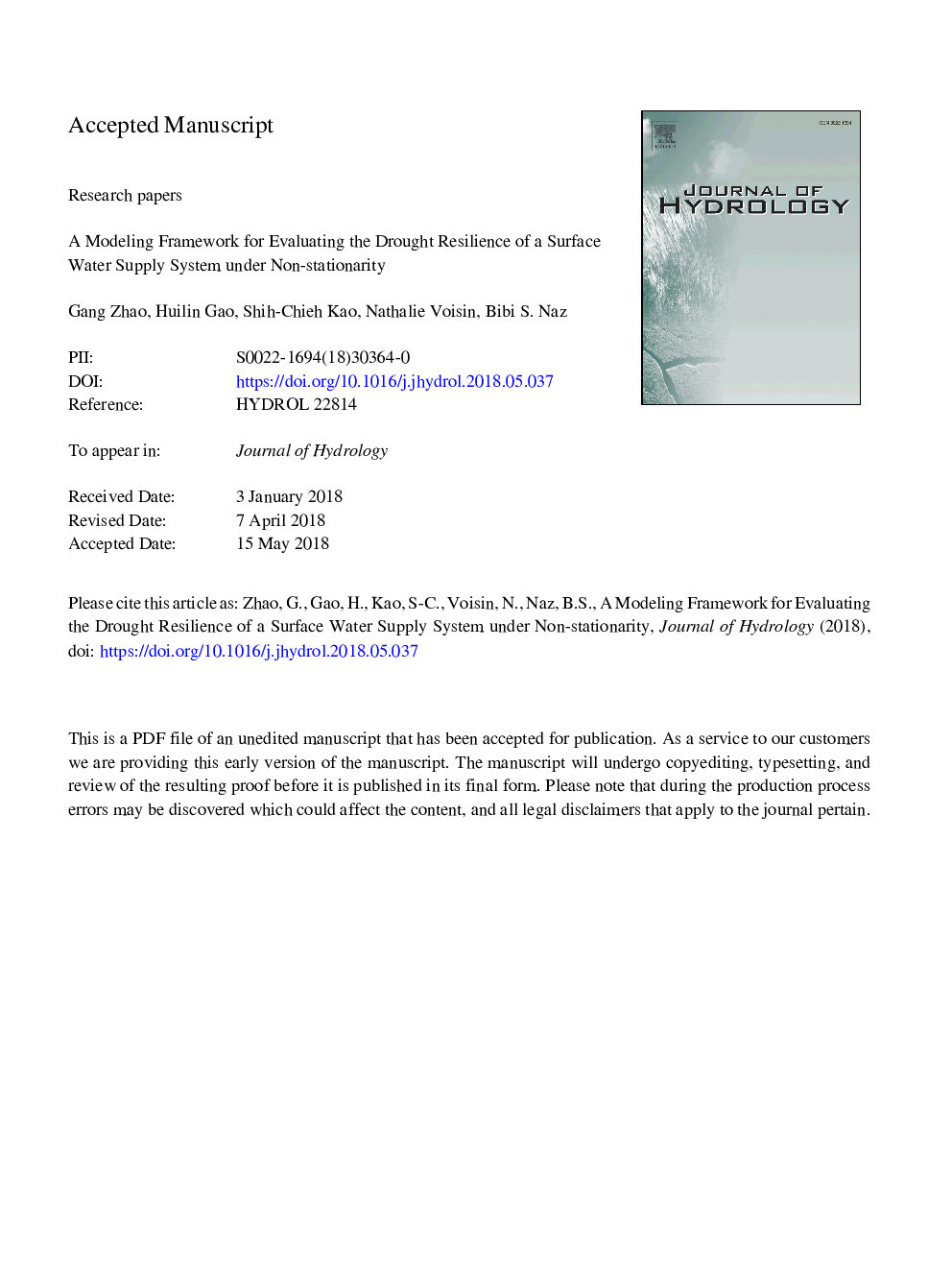| کد مقاله | کد نشریه | سال انتشار | مقاله انگلیسی | نسخه تمام متن |
|---|---|---|---|---|
| 8894545 | 1629891 | 2018 | 47 صفحه PDF | دانلود رایگان |
عنوان انگلیسی مقاله ISI
A modeling framework for evaluating the drought resilience of a surface water supply system under non-stationarity
ترجمه فارسی عنوان
چارچوب مدل سازی برای ارزیابی قابلیت انعطاف پذیری خشکسالی یک سیستم تامین آب سطحی تحت عدم
دانلود مقاله + سفارش ترجمه
دانلود مقاله ISI انگلیسی
رایگان برای ایرانیان
کلمات کلیدی
انعطاف پذیری آب، غیر استثنایی، خشکسالی، تغییر آب و هوا، رشد تقاضا،
موضوعات مرتبط
مهندسی و علوم پایه
علوم زمین و سیارات
فرآیندهای سطح زمین
چکیده انگلیسی
The future resilience of water supply systems is unprecedentedly challenged by non-stationary processes, such as fast population growth and a changing climate. A thorough understanding of how these non-stationarities impact water supply resilience is vital to support sustainable decision making, particularly for large cities in arid and/or semi-arid regions. In this study, a novel modeling framework, which integrates hydrological processes and water management, was established over a representative water limited metropolitan area to evaluate the impacts of water availability and water demand on reservoir storage and water supply reliability. In this framework, climate change induced drought events were selected from statistically downscaled Coupled Model Intercomparison Project Phase 5 outputs under the Representative Concentration Pathway 8.5 scenario, while future water demand was estimated by the product of projected future population and per capita water use. Compared with the first half of the 21st century (2000-2049), reservoir storage and water supply reliability during the second half century (2050-2099) are projected to reduce by 16.1% and 14.2%, respectively. While both future multi-year droughts and population growth will lower water supply resilience, the uncertainty associated with future climate projection is larger than that associated with urbanization. To reduce the drought risks, a combination of mitigation strategies (e.g., additional conservation, integrating new water sources, and water use redistribution) was found to be the most efficient approach and can significantly improve water supply reliability by as much as 15.9%.
ناشر
Database: Elsevier - ScienceDirect (ساینس دایرکت)
Journal: Journal of Hydrology - Volume 563, August 2018, Pages 22-32
Journal: Journal of Hydrology - Volume 563, August 2018, Pages 22-32
نویسندگان
Gang Zhao, Huilin Gao, Shih-Chieh Kao, Nathalie Voisin, Bibi S. Naz,
